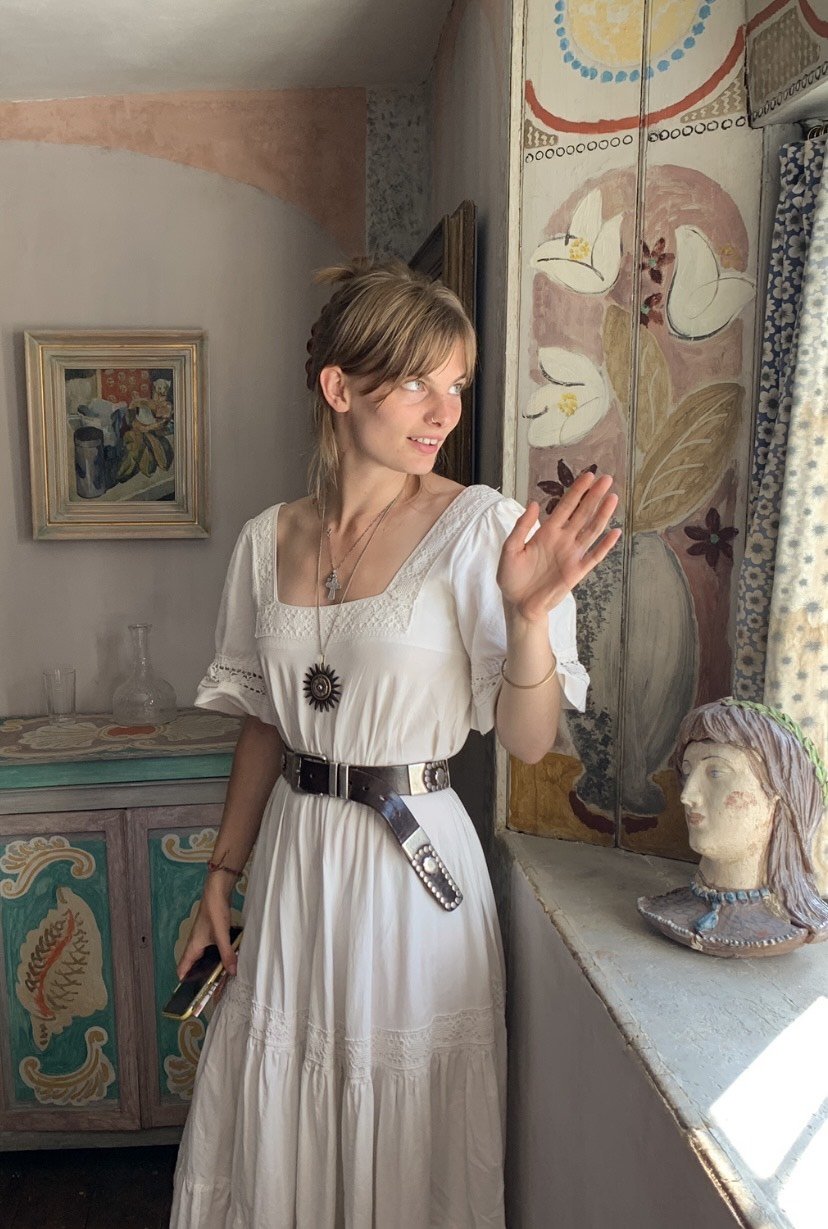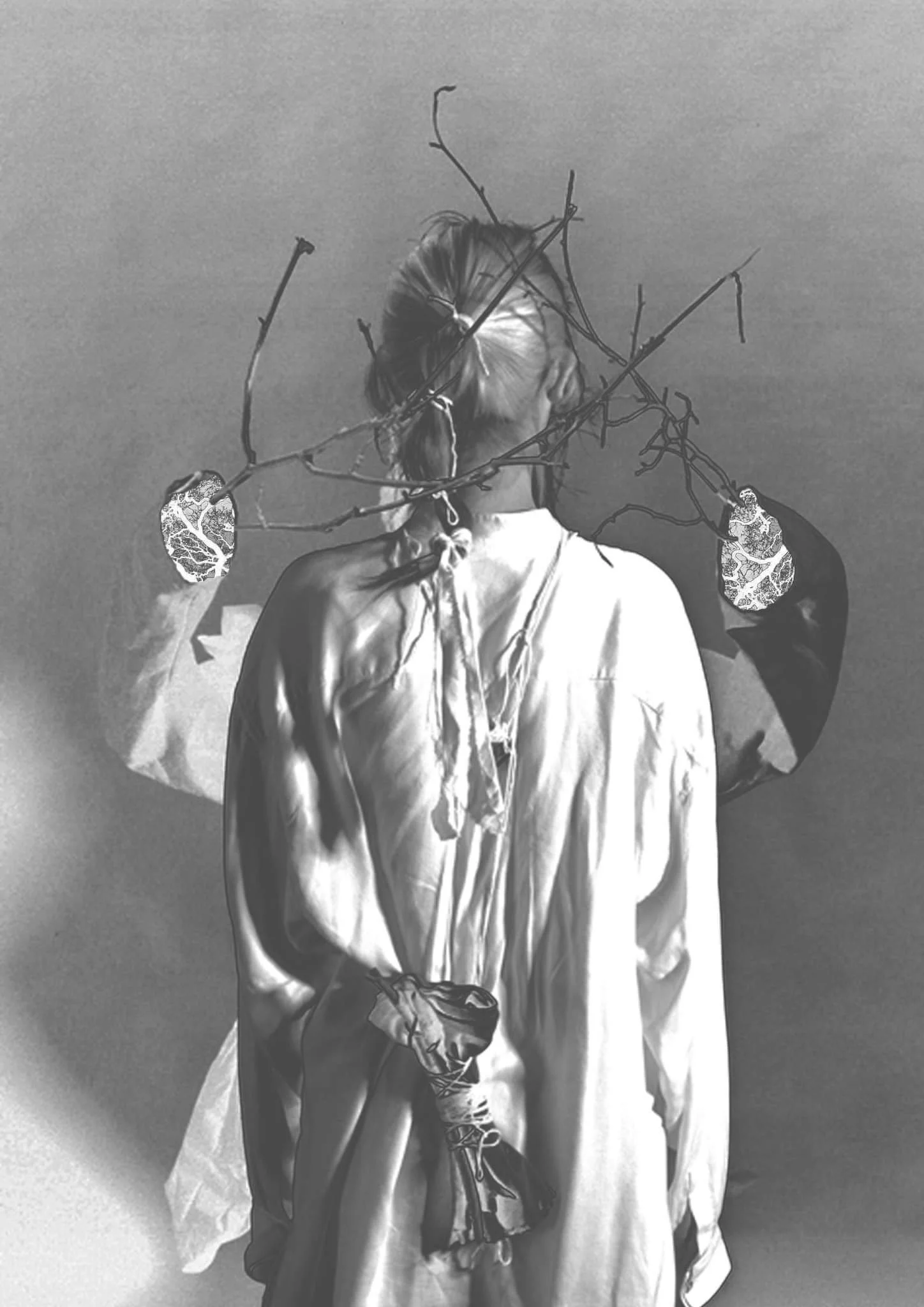Catching up with Creatives in the Creative Scene
By Ruth Harding-Brown
It could be argued that London is the best place to start your creative career. Not only does Britain’s capital boast some of the best Art Universities in the world, but the creative landscape is vast and deep, with countless spaces in London for upcoming artists; not only to exhibit their own talents but also to immerse themselves in their respective committees.
Frieze London, one of the leading contemporary art festivals, commences on the 11th of October, continuing on for four days as the BFI Film festival in Southbank renews for another year. These are only a handful of the artistic opportunities accessible in London throughout the year. With this being said, many young, talented individuals find it difficult to get off the starting block and dive into the creative industry, be it music, fashion or art. Having interviewed a range of female artists, living or having lived in their respective capital city, this article is an exploration of the creative industry in one of the best cities in modern society, and a discussion on how young people can armour themselves for the battle of the professional world.
Courtesy of Abigail Bronimann
Abigail Bronimann who also resides in Hastings, studied at the Chelsea College of Art and who subsequently lived in London for two years. For Abbie, her inspiration came from her childhood environment.
A: ‘Having great teachers at school and being an art scholar definitely played a massive role steering me towards fine art painting. I also inherited paints and other tools from my great gran who was a beautiful painter.’
Abbie and Mary moved to Hastings after finding it difficult to finance their artistic career, facing the effects of living in arguably one of the most expensive cities in the world.
I asked both the complicated question of whether they think their industry is based on a meritocratic system; both women answered that it was not.
A: I don't think the art industry is a meritocracy at all. Purely on the basis that you have to be extremely lucky to study or have the funds to create art in the first place. Let alone have the funds to live in London and afford a studio which can be half the price of rent.
M: No, it is unduly influenced by money and power, which I believe is getting worse in the contemporary scene. Although there are many exceptions and many artists at the top of their game are due their respect and success.
Courtesy of Mary
For Abbie, the problem with social media is that it doesn’t seem to be a beneficial space for upcoming artists.
A: ‘Social media does not portray the struggling artists which have not made it yet. Generally, only famous or already established artists get acknowledgment online. I think having more creative pages especially for new artists would really help this.’
Looking more at the role of social media in the journey of early creatives, Mary divulged how she felt about the significance of being a good marketer or businessperson when trying to promote your art online.
M: ‘Social media such as Instagram has given many people a platform to show their work and gain the recognition they would not have otherwise, which is great, but this makes every artist have to think about the upkeep of their social media and turns every artist into a business.’
Thinking about social platforms as an early creative definitely can feel counterintuitive. It is widely understood that pages such as Indeed or Linkedin, aren’t targeted for the creative community.
Courtesy of Aifric Prior Beliere
Conversely, Aifric Prior Beliere, a musician and artist living in Dublin, has a different answer to this question.
Aif: Fundamentally, I don’t know if art should be part of a meritocracy or if it should exist without any kind of hierarchical system involved. I’m still figuring this one out.
For Aifric her inspiration came from the fact that she had a multitude of interests growing up and, ‘art seemed like an umbrella under which [she] could tie a lot of things together.’
All three agreed, however, that appropriately many artists can owe their success to their incomparable talent. The discourse of the significance of wealth in the art industry is a compelling one, especially as this can answer the question of why so many young individuals can’t seem to open the right doors at the initial stages of their creative journey.
Across all capital cities, be it London, Dublin, Paris or Mexico City social media is playing a huge role in our perception of the art industry, both regarding the individuals within and what we can expect from dedicating our lives to being a part of it. I asked Aifric what she believed was the biggest misconception of the creative industry.
Aif: ‘Creativity can work for some people on a schedule, with a studio and a clear line to follow. I think sometimes a picture is painted of something much neater. For me, my work is fragmented, a lot of my ideas are messy and then, when the time is right, something comes out of all of this that relates to the messiness of life.’
Courtesy of Oliwia Rozalia Filipek
However, networking is something which is still valuable in artistic areas. Is it fair to say that forming personal connections is more beneficial than creating a sturdy online professional persona? Perhaps this is the case in the fashion industry. Oliwia Rozalia Filipek, a Polish fashion stylist living in London argues that the key to success is, ‘all about your confidence and being able to ask questions. It's best to put yourself out there.’ For Oliwia, London is definitely the best place to start your artistic career because of the endless possibilities and the potential for social connections to be formed.
For Oliwia her most creative project was working on her Dream Diary Book which explores, ‘showing the symbolism of dreams and difference between nightmares and good dreams,’ during her Fashion Communication and Styling degree. This project was particularly special as it was inspired by her family and is the one she cherishes the most. This is unsurprising as Oliwia’s inspiration in fashion came from the mystical world of fairy tales.
O: ‘Since I can remember I always loved movies, all the stories full of magic and mystical creatures. This is the place where I tend to want to be part of, so I was trying to become all of those different characters, dressing up and pretending I am living in those stories. So, I would say the inspiration comes from movies.’
When asked about the difficulties she has faced during her career journey, her answer was positive and inspirational.
O: ‘To be fair, I was never struggling as this was something I always wanted since I was a child. No struggling to make a decision, just motivation. I learnt that overthinking will just make me feel lost with reaching the goal.’
For an upcoming artist, stylist or musician maintaining motivation in a potentially unforgiving industry is imperative and often relies on their unwavering passion.
The creation of an uncensored environment where young creative professionals can hear advice, share stories and gain a wider understanding of the industry seems the best way for initial creatives to dive into the art world.
What advice would these women give to young professionals?
A: ‘My advice would be to not do a master's immediately after BA course as you need time to develop your practice. Also don't live somewhere really expensive if you find you have no time to create.’
O: ‘Do as much as you can, don't be scared or embarrassed when it comes to asking about anything, your future depends on it!’
Aif: ‘Trust yourself. Try things out and see them through, you’ll surprise yourself with what you can do.’










